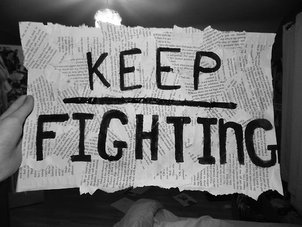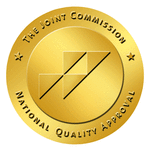
Sometimes size matters and sometimes it doesn’t. When we’re discussing recovery, there are several interesting aspects about size to consider.
First, it doesn’t matter a bit how big we are, except how big in spirit we are. Our physical dimensions are really irrelevant to the subject of recovery. Whether we are a strapping six-foot four-inch man or a diminutive four-foot one-inch woman, or tall and large, tall or large, short and small, or short and large, our recovery prospects have nothing to do with our size. They also have nothing to do with our shape, but that’s still more or less part of the size dimension.
Our spirit, however, is a different story. When we are small in spirit, we’re likely picky and petty, prone to making quick decisions and of harboring a grudge. Granted, not everyone will have these characteristics, but being small in spirit is a rather limiting factor with respect to our recovery. Why? When we think small, that is, we don’t give others the benefit of the doubt, when we’re envious and lash out with a critical or biting remark, or when we simply refuse to recognize what others have to say because we believe that what they have to offer is meaningless to us or we simply don’t want to hear anything that contradicts our world-view, we’re putting ourselves in a narrow and somewhat restricted space that doesn’t allow for much growth in recovery.
On the other hand, where size does matter, and matter a lot, is how much fight we have in us. This doesn’t refer to fighting in the sense of initiating or participating in physical combat with another individual. The fight we’re talking about is our determination and resolve and persistence and dedication to sticking to a task, of not giving up on a challenge and refusing to tuck our tail between our legs and retreat in the face of an obstacle.
It is amazing how much fight we actually have, if we gear ourselves toward adopting that mind-set. We can actually train ourselves to continue fighting, even if it is not in our nature to do so. In fact, much of what we likely learned during rehab can be construed as a preparation to learn how to fight.
We are all in a fight to maintain our sobriety, to learn new and effective strategies and to identify solutions that will be workable for the problems and issues and challenges we face. Some of the hurdles that we need to overcome are fairly formidable. Some may even seem insurmountable. We may be tempted to give up. That’s the natural inclination. But that’s not what gets us through the tough times. Giving up is akin to giving in. It’s relinquishing our power over our actions and copping to the excuse that whatever it was we faced was just too difficult for us.
We need to always have the fighting instinct when it comes to our recovery. We simply cannot give up and give in, taking the easy way out. It isn’t someone else’s job to do our work for us. Frankly, they can’t. They’re too busy doing their own recovery work, as they should. No, it’s up to us to tend to our own affairs, to get off the dime and take the required actions to help strengthen our foundation in sobriety.
This does not mean, however, that we figure everything out on our own. That would be like the fox let into the henhouse. We’d be all over the place, doing our own thing and casting a wide swath of self-destruction along the way. What we do have to help us is our support network, including our sponsor and fellow group members, our loving family and close friends. While they cannot do our work for us, they can be there to support and encourage us every step of the way, particularly when we encounter formidable obstacles and challenges that could jeopardize our sobriety.
How do we ensure that we have sufficient fighting instinct? Can we train ourselves to be ready to stand up for what we believe, to persist in the face of failure or lack of progress, to go back time and time again until we achieve success? The answer is that of course we can. But it isn’t necessarily going to be easy. In fact, developing the will and determination to see difficult tasks through takes time and a great deal of practice. We’re not going to get it right the first time, but hopefully we will learn something that will help us the next time.
As with anything else facing us in recovery, the way to succeed is to take action and to keep on working to the best of our ability. If we give it everything we’ve got, we’re already taking the right step. At least we’re headed in the right direction. Recognizing that we have much more to learn will also help temper any minor disappointments or slight setbacks along the way.
The thing is that we don’t have a crystal ball. We have absolutely no idea what issues or challenges or obstacles we’ll encounter next week or next month or two to five years from now. But what we can do is work hard on developing our strengths and perfecting our skills, filling out our recovery toolkit with effective and workable strategies and solutions that we can use when we need them. As in, we pull them out and figure out which is the best one to use when we face a new challenge, when we have to marshal our fighting instinct to pursue despite difficulties.
We can be a big dog in the fight, if we choose to be. This means never giving up, never giving in, never saying to ourselves that we don’t have what it takes and can never succeed. We can and we will, as long as we have a lot of fight in us.

 RSS Feed
RSS Feed
